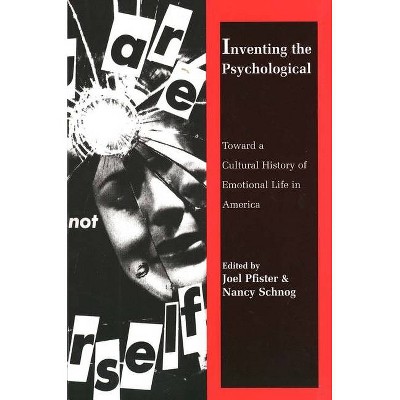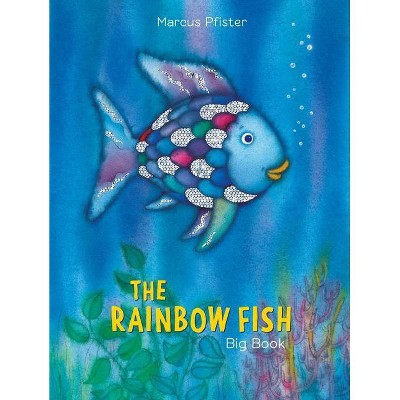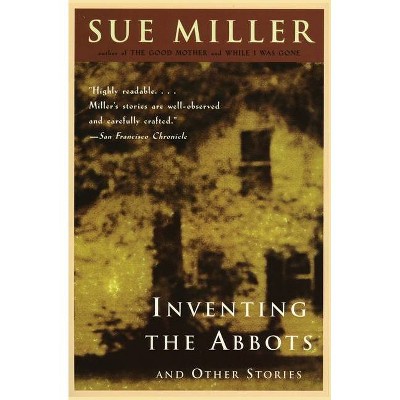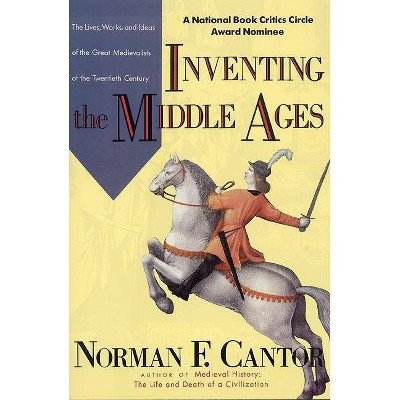Inventing the Psychological - by Joel Pfister & Nancy Schnog (Paperback)

Similar Products
Products of same category from the store
AllProduct info
<p/><br></br><p><b> Book Synopsis </b></p></br></br>When and why did it become chic for members of the white middle and upper classes to perceive and value themselves as neurotic, primitive, and emotionally fragile? Is the popular tendency to define the self in psychological language derived from revealed (Freudian) truths, or does American culture for various purposes invent and promote emotional and psychological identities? <p/>In this fascinating book, distinguished interdisciplinary scholars show that the ways Americans imagine innerness and emotions have been shaped by mass media, economics, domesticity, and the arts. The authors investigate how changes in ideologies of the family, class, race, gender, and sexuality over the past two centuries relate to shifts in Americans' visions of self and psyche; they study the psychological as a changing cultural category and emotions as historically shifting self-definitions. Their compelling topics include how the Romantic idea of moods was appropriated by nineteenth-century female authors of sentimental fiction; how black jazz musicians have responded to white interpretations of African-American jazz as emotionally and aesthetically deep; and whether women's confessions of victimization on the <i>Oprah Winfrey Show</i> are akin to 1970s feminist consciousness-raising groups. Provocative and timely, the book challenges the premises of psychohistory and the dominant ways in which Americans have been taught to conceptualize the making of psychological and emotional life.<p/><br></br><p><b> From the Back Cover </b></p></br></br>In this fascinating book, distinguished interdisciplinary scholars show that the ways Americans imagine 'innerness' and emotions have been shaped by mass media, economics, domesticity, and the arts.<p/><br></br><p><b> About the Author </b></p></br></br><b>Joel Pfister</b> is associate professor of American Studies and English at Wesleyan University and the author of <i>The Production of Personal Life: Class, Gender, and the Psychological in Hawthorne's Fiction</i> and <i>Staging Depth: Eugene O'Neill and the Politics of Psychological Discourse</i>. <b>Nancy Schnog</b> has taught American literature and civilization at Middlebury College and is currently a visiting lecturer in the department of English at Tel Aviv University. She has published studies of nineteenth-century literary culture and is now completing a book entitled <i>Inside the Sentimental: The Psychological Work of Nineteenth-Century American Women's Writing</i>. She is also a book critic for <i>The Jerusalem Post</i>.<br>
Price History
Price Archive shows prices from various stores, lets you see history and find the cheapest. There is no actual sale on the website. For all support, inquiry and suggestion messagescommunication@pricearchive.us




















